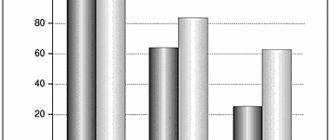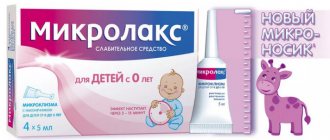Modern human lifestyle: inactivity, low-quality nutrition and lack of the slightest physical activity often lead to the occurrence of such a common disease as hemorrhoids. With it, hemorrhoids often appear, which structurally have the appearance of compactions. During circulatory disorders, as well as during blood stagnation, they can crack and tear, which can cause blood to leak from damaged areas. Hemorrhoidal bleeding is a symptom that causes serious concern for the patient and forces him to seek help from a specialist as quickly as possible. To treat bleeding hemorrhoids, special suppositories are often used.
Compatibility of Vikasol and alcohol
? The interaction of the drug with ethanol always occurs, regardless of whether the drug is administered orally or by injection. Both substances have a significant effect on the liver.
About 90% of alcohol is broken down by this organ. It is estimated that the liver is able to utilize 200 ml of ethanol in 8 – 12 hours. Everything else that enters the body poisons hepatocytes, leading to their destruction.
The action is based on accelerating the synthesis of vitamin K, a catalyst for prothrombin. The production of this element occurs in segments of the liver. Thus, when substances are combined, the organ is not only exposed to intoxication, but is forced to work in an enhanced mode. Often such a load provokes a malfunction of the liver.
An increase in the concentration of vitamin K leads to increased formation of prothrombin plugs, which clog the bleeding vessel. Normally, this process occurs without pathology or risk. But alcohol has the property of thickening the blood.
Within an hour after consuming the dose, red blood cell aggregation is observed. Their structure is disrupted, they become deformed and stick together. A double blow to the circulatory system can cause the formation of blood clots and vascular embolism.
Ethanol has been proven to slow down the breakdown of any drug. This means absorption occurs more slowly, the effect occurs later and not in full. In the case of bleeding, this situation is extremely dangerous and threatens the development of anemia.
VICASOL (tablets)
For this drug, this is a huge plus that outweighs the minuses.
Well, so, I take Vikasol only in case of heavy periods, when I understand that the prescribed schedule has already passed, and the Red Army is still with me. Sorry for the comparison, but the topic is delicate, I try my best not to hurt my eyes. And in the case when heavy critical days can develop into uterine bleeding, and so there are problems, I don’t want even bigger ones. All I have is some kind of preface, well, the effect of the drug is cumulative. The effect manifests itself after three days, only then are the first relaxations noticeable; after about a week, the Red Army accepts defeat and leaves the battlefield. Already at the next war, the army comes in peace, they hang out for the allotted time and leave. =Composition, contraindications, side effects=
The list of contraindications is not long, but there is, as well as a list of side effects. The photographs show all the instructions on both sides. I will dwell only on some particularly frightening words. You cannot take the drug in case of hypercoagulation (called a state of increased blood clotting activity), phew, the name is worse than hell, and glucose-galactose malabsorption (insufficient absorption of nutrients into the small intestine), but here, on the contrary, the decoding is worse. We've sorted this out, let's move on to the side effects, the worst ones are allergic reactions, anemia, jaundice (this is a side effect, that's a side effect). None of the above showed up in me, although it was scary, because I have an allergic reaction to some medications. I remember spasmalgon and break into a sweat, but after reading the composition I did not find the components that were included in spasmalgon. By the way, I didn’t see anything terrible in the composition, any wild words, nothing like that.
=Packaging=
Simple packaging with a recognizable green and white design and the biosynthesis logo (those who bought something from this manufacturer will understand what I mean). There are 30 tablets in the package, the package says synthetic vitamin K analogue, oh, the drug even belongs to the vitamin category, I didn’t know, I didn’t pay attention. Small white life-saving tablets containing 15 mg of the substance vikasol, or in abstruse language, menadione sodium bisulfite. Shelf life is about 3 years. By the way, I bought it from the Nika pharmacy chain.
=Total=
I recommend Vikasol tablets from Biosintez JSC to those who, like me, are faced with heavy bleeding. But I recommend without responsibility, it is better to consult a doctor. I took 1 tablet three times a day, as a rule, the taking time was about 4-5 days, rarely more. I took off one star for side effects and contraindications, but it is definitely worth 4, since the action is very effective. We ask the readers, only without suggestions to consult a doctor, traditional medicine, and the words ah-ay-ay, it’s dangerous. I’m not a little girl, I’ll definitely figure it out, but if anyone has any experience or some good advice, I’d be happy to do so.
Good health to everyone and don’t get sick!
Briefly about the drug
A hemostatic agent is an artificially synthesized analogue of vitamin K. A necessary element involved in the synthesis of prothrombin and normalizing the functioning of the blood coagulation system.
Its action begins 10 hours after intramuscular injection, 16 hours after oral administration. It is not effective as an emergency hemostasis; a course of treatment is more often prescribed, since the drug has a cumulative property.
The drug is successfully used in the following cases:
- bleeding of low intensity: gastrointestinal, uterine, hemorrhoidal;
- low prothrombin index;
- jaundice caused by blockage of the bile ducts, vitamin K deficiency;
- hepatitis and liver dysfunction;
- hemorrhagic disease;
- prevention after surgery.
Contraindications include: thrombophlebitis, hyperthrombopenia, individual intolerance. The consequences of combining the medication with alcoholic beverages are not indicated by the manufacturer, but among the side effects, hemolysis takes first place.
Suppositories for hemorrhoids
Anuzol suppositories are especially effective in cases of heavy bleeding due to hemorrhoids.
For hemorrhoids with bleeding, various types of suppositories can be used to help cope with the problem. Rectal suppositories are medicines with a quick effect that relieve all symptoms of the disease. They are effective in treatment and easy to use. The substances that make up them are well absorbed by the mucous membrane, increasing the effectiveness of complex therapy. Relief Advance is a popular drug that is often used to treat hemorrhoids. It belongs to the type of anti-inflammatory and hemostatic suppositories.
This medicine not only fights the disease, but also copes with the symptoms that accompany it.
Relief Advance suppositories can be used for a variety of forms of hemorrhoids and are effective in healing anal wounds, combating inflammatory processes and stopping bleeding. In addition, the drug can be used to prevent the disease, and it also relieves the patient from itching and burning - painful symptoms of hemorrhoids. Despite the many positive aspects of Relief Adams candles, they are also not without some contraindications:
Possibility of therapy for drunkards
A person who drinks alcohol regularly and for a long time has impaired liver function. The organ is not able to produce sufficient amounts of vitamin K, so the prescription is justified. But during the course of therapy it is important to monitor the state of the blood.
A drinking person has another problem - bleeding: gastric, intestinal, hemorrhoidal. The constant irritant effect that ethanol has on the mucous membrane of the digestive system causes the death of epithelial cells and atrophy of the glands.
The wall of the organ becomes ulcerated, inflamed, and bleeding. Anemia, which often accompanies alcoholism, disrupts the functioning of the blood coagulation system. The drug is prescribed as a complex for the treatment of pathologies of the gastrointestinal tract.
Dicynon for uterine bleeding In case of uterine bleeding, synthetic drugs are often prescribed that have a beneficial effect on the lining of the uterine cavity. Such a drug is dicinone. Its pharmacological properties include the following: the ability to activate the process of formation of the thromboplastin protein; normalizing blood clotting prevents the formation of blood clots. Dicynone is available in several forms: tablets, injections. This drug has proven its effectiveness in treating bleeding that is localized in small vessels. After taking dicinone (the dosage should be prescribed only by the attending physician), a woman will be able to feel the effect within a few hours. Repeated testing of this drug has shown that the highest results are achieved when taking tablets rather than intramuscular injections. To stop uterine bleeding, experts use the following regimen: two ampoules of dicinone are administered intravenously (can be intramuscularly), after which this drug is prescribed in tablet form every six hours. In order to prevent bleeding, the patient should take this drug orally, starting from the 5th day of the menstrual cycle.
Tranexam for uterine bleeding Tranexam is rightfully considered the first aid for uterine bleeding, since it can very quickly cope with this problem. This drug has a direct effect on the blood clotting process and directly affects plasminogen (inactive). Tranexam is now available in pharmacies, both in the form of tablets and in the form of injections (intramuscular). If moderate blood loss is observed, then tablets will be sufficient. When determining the dosage, the doctor must take into account the patient’s weight and the severity of the disease. Tranexam is often prescribed to prevent uterine bleeding, especially when preparing patients for surgical procedures.
Vikasol for uterine bleeding Vikasol is a synthetic medical drug that can replace vitamin K, which is important for women’s health, and is actively involved in the production of prothrombin. In the absence or insufficient amount of this vitamin, women develop bleeding. After taking Vikasol, patients experience relief only after 12-18 hours, which is why it is not used in emergency care. Despite this, many doctors often prescribe this drug in the complex treatment of uterine bleeding, as well as for preventive purposes. Vikasol is prescribed to pregnant women after the onset of the first contractions to prevent the development of bleeding, which may develop during the onset of the active phase of labor.
Etamsylate for uterine bleeding For menstrual bleeding, doctors often prescribe medications that can significantly reduce the volume of menstruation. A great effect is achieved when taking etamsylate, which has extensive pharmacological properties: it has the ability to stop bleeding; activates the processes responsible for blood clotting and the rate of platelet adhesion; increases the elasticity and stability of capillaries, etc. While taking etamsylate, patients do not experience internal discomfort, since this drug has a smooth effect on the female body. In the process of conducting numerous studies, it was revealed that ethamsylate does not cause sudden blood clotting, which prevents the formation of blood clots. It is prescribed for any type of bleeding, in particular uterine. Very often, etamsylate is included in the treatment program for heavy menstrual flow, as well as otolaryngological, dental and ophthalmological diseases. Oxytocin for uterine bleeding Oxytocin When uterine bleeding develops, the first action of a specialist is to prescribe a drug to the woman that can quickly provide the necessary assistance. Oxytocin, which has a selective effect on the uterus, can stop blood loss. After taking oxytocin, the female body experiences increased excitability of muscle fibers, against the background of which strong contractions begin. This drug can be prescribed both in tablet form and as intravenous injections. Ascorutin for uterine bleeding Ascorutin, which has been actively used in gynecology for many years, can provide real help to women suffering from heavy periods, often developing into uterine bleeding. This medicine contains the following main components: vitamin P (rutin) and ascorbic acid. Its direct effect on the female body is to strengthen the walls of blood vessels, preventing fragility and permeability of capillaries. With long-term use of ascorutin (the duration is determined by the attending physician), tissue regeneration occurs, and the protective functions of the female body are activated, capable of resisting any negative effects. Vikasol for uterine bleeding An effective synthetic drug that can replace and saturate the female body with vitamin K is Vikasol. This drug activates the process of prothrombin production, which has a direct effect on blood clotting. Despite the fact that Vikasol has proven its effectiveness in the treatment of uterine bleeding, its use should be very careful. Like any other hemostatic drug, Vicasol has contraindications, which include: thromboembolism and increased blood clotting. That is why self-administration of this drug is prohibited. All prescriptions must be given only by the attending physician. Etamzilat (injections) for uterine bleeding Etamzilat is a medical drug with hemostatic properties. While taking this drug, patients experience strengthening of blood vessels, an increase in platelet cells in the bone marrow, etc. After prescribing ethamsylate in women, the fragility of blood vessels is significantly reduced, and the level of ascorbic acid in the blood plasma is stabilized. When taking this drug, the effect is observed after 10-15 minutes. Having had a beneficial effect on the patient’s body, etamsylate begins to break down very quickly and is excreted during urination.
Aminocaproic acid for uterine bleeding Aminocaproic acid is a synthetic medical drug often used to stop uterine bleeding. Its prescription should only occur in a hospital, where doctors have the opportunity to regularly monitor the quality of patients’ blood through a laboratory test - a coagulogram. Aminocaproic acid can improve liver functionality and also inhibit the process of antibody formation.
Risk of combining two substances
Treatment with the drug at the stage of active intoxication carries certain risks:
- The body often reacts with hypersensitivity to the components of the drug. Rapid allergic reactions include: drop in blood pressure, dizziness, weakness, feeling of tightness in the chest, sudden sweating. Later occurs: anemia, increased amount of prothrombin, increased bilirubin concentration, tachycardia.
- Against the background of intoxication, it is difficult for a person to adequately assess the severity of the condition and the required dose of medication. In this case, it is better to carry out all therapeutic measures under the supervision of a doctor.
- The resulting consequence is an overdose of the drug, the occurrence of thromboembolism. An insufficient dose to stop bleeding due to prolonged alcohol intake leads to the development of anemia or massive blood loss.
It is impossible to calculate in advance how the body will behave when mixing medications with alcohol. If once such treatment was without consequences, there is no guarantee of a successful outcome in another case.
Correct use of suppositories for bleeding hemorrhoids
Rectal suppositories are often prescribed for treatment.
Suppositories are a type of medicine that is administered rectally: for them to be effective, the drug must be in direct contact with the surface of the rectum. Before using this type of medication, you need to empty your large intestine (to do this, you can simply go to the toilet, or use a cleansing enema). After this, you should clean the perianal area by washing it with warm water and soap. In case of bleeding, you need to use a paper towel to blot it. Typically, suppositories for the treatment of hemorrhoids are administered before bedtime, since at night the absorption of the active components of the drug, as well as the body’s recovery processes, occur faster, and this contributes to more effective treatment of the disease. The suppository must be cleared of the cellophane coating and inserted into the anus as quickly as possible, since the suppository quickly melts in the hands.
Alternative methods of combating hemorrhoids with bleeding are ineffective if you use only them for treatment, without resorting to the services of conventional medicine. When they are used in combination with standard methods prescribed by a qualified proctologist, then traditional methods can speed up the healing process. The instructions for administering suppositories are simple: you need to cleanse the large intestine, rinse the perianal area and insert a suppository into the anus before going to bed. Hemorrhoids are a serious disease and although it is awkward to seek help, you should not refuse to consult a doctor. Bleeding is one of the main symptoms of this disease, causing concern for the patient. A variety of methods can be used to stop bleeding, but it will be most effective to undergo treatment under the supervision of a qualified proctologist: only he can select the most suitable drugs and prescribe their correct use.
When is it acceptable to drink alcohol?
How long after treatment you can drink is determined based on the duration of the course. The effect of the drug begins 10 hours after entering the blood; the duration of administration is calculated individually.
You can allow yourself a small amount of alcohol no earlier than 24 hours after the last injection.
Even if the medication seems harmless, its combination with ethanol is unpredictable. It is often prescribed as part of the treatment of alcoholism. But the effectiveness and safety of therapy is only possible with complete abstinence from alcohol, at least while taking the medications.
How to stop bleeding
Relief Advance is an excellent suppository for hemorrhoids.
Stopping bleeding from hemorrhoids is an important matter that should not be put off. Also, do not forget that the mere fact of stopping hemorrhoidal bleeding is not at all a reason for refusing to seek help from a doctor. The most common over-the-counter drug that is effective only for very small bleeding is the drug Vikasol. If the problem does not stop within half an hour, you should apply ice and contact an ambulance. There are also several ways to combat bleeding using traditional medicine:
- calendula tincture lotions
- microenemas consisting of blueberry decoction, calendula tincture, wheatgrass rhizome and one percent tannin solution
- garlic steam
- candles made from infusions of medicinal herbs
Preventive measures that reduce the risk of problems occurring during bowel movements:
- special diet
- performing various exercises and playing sports
- use of hard furniture
- weight control
- washing with cold water after defecation
Hemorrhoidal bleeding is a symptom of hemorrhoids that appears as a result of damage to hemorrhoids - seals formed on the surface of the rectum. There are many methods to stop bleeding, but only a specialist can truly cure this disease. The doctor will prescribe a diet, necessary exercises and other measures to combat bleeding from hemorrhoids.
Vikasol and beer
Regardless of the form of Vikasol, taking it with beer is strictly prohibited by manufacturers and doctors. Both substances, even in minimal dosages, affect the patient’s body, especially his liver. Poisoning of hepatocytes can provoke the development of hepatosis, fibrosis or cirrhosis.
Doctors diagnose red blood cell aggregation, indicating deformation and gluing. All this can lead to thrombus formation and vascular embolism. The state of intoxication and hangover also increases.
Organs affected by the toxin
The combined use of pharmacological agents and alcohol has a toxic effect on the internal organs and environments of the body. Alcohol, entering into a chemical reaction with a medicine, leads to poisoning, disrupts physiological processes, enhances or weakens the healing properties of drugs.
The liver suffers more than other organs. She gets hit twice. Many medications have a side effect - hepatotoxicity, destroy cells, and disrupt the physiology of the organ. In the liver, alcohol breaks down to ethanal, a substance 20-30 times more toxic than ethanol, which causes the death of hepatocytes.
Dangerous groups of drugs for the organ in combination with alcohol:
- anti-inflammatory;
- hormonal;
- antibacterial;
- antifungal;
- glucose control agents for diabetes mellitus;
- anti-tuberculosis;
- cytostatics (chemotherapy drugs);
- tranquilizers (anti-epileptic, psychotropic).
In second place among the internal organs exposed to the harmful effects of alcohol together with medications are the heart and vascular system. Strong drinks during drug therapy constrict blood vessels and increase blood pressure. The simultaneous intake of alcohol and chemical substances leads to failure of the myocardium and increases the risk of developing an attack of angina pectoris and a heart attack.
A mixture of ethanol and pharmaceuticals disrupts the quality of the blood and reduces clotting. This is dangerous due to internal bleeding and strokes.
Rules for taking medications and alcohol
Drinking alcohol during treatment minimizes the clinical effect of therapy and creates a risk of developing complications of the disease.
If this cannot be avoided, follow the rules of behavior that will reduce the occurrence of negative consequences:
- Do not drink strong drinks (vodka, cognac, whiskey), choose dry wine (100-150 ml), beer (no more than 300 ml). Don't drink alcohol on an empty stomach.
- The interval between taking the medicine and alcohol should be at least 2 hours.
- To reduce the toxic effect, take medications that protect the liver (hepatoprotectors), pancreas (pancreatin), and stomach (antacids ─ Rennie, Almagel).
If a person takes antiviral medications for colds, anti-inflammatory drugs, alcohol in moderation does not pose a threat to the body.
Alcoholic drinks during treatment are strictly contraindicated in cases of liver cirrhosis, severe infectious diseases, and during a course of chemotherapy.
Medicines, alcohol and chronic diseases
If a person has chronic diseases, simultaneous use of alcohol and medications is potentially dangerous for the functioning of vital organs. Since patients systematically take prescribed medications, the influence of alcohol can lead to negative consequences.
People with chronic heart disease (angina pectoris, heart defects) develop arrhythmias of varying severity. Heart attacks with severe pain syndrome develop, which is not relieved by Nitroglycerin, and the risk of developing myocardial infarction increases significantly.
In case of chronic liver diseases (viral hepatitis, hepatosis), alcohol during treatment can become a trigger in the development of cirrhosis and hepatocellular carcinoma (cancer).
Drinking alcohol during cirrhosis leads to the following consequences:
- bleeding into the abdominal cavity;
- liver decomposition, infection, peritonitis;
- hepatic coma;
- death.
If a person is on long-term treatment with sedatives, psychotropic drugs, tranquilizers, he is contraindicated in drinking alcohol. This leads to severe depression and the appearance of obsessive states (hallucinations, phobias). Suicidal feelings develop. Such a patient needs constant monitoring and assistance from a psychiatrist.
The most dangerous combinations and consequences
The combination of alcohol and chemical-based drugs can lead to serious disorders in the body, and in some cases to fatal consequences.
List of medications and their side effects in combination with alcohol:
| Name of group, drug | Negative results of interaction |
| Neuroleptics (tranquilizers, anticonvulsants, hypnotics) | Severe intoxication, up to cerebral coma |
| CNS stimulants (Theophedrine, Ephedrine, Caffeine) | Rapid increase in blood pressure, hypertensive crisis |
| Antihypertensives (Captofrin, Enalapril, Enap-N), diuretics (Indapamide, Furosemide) | Sudden drop in pressure, collapse |
| Analgesics, anti-inflammatory | Increased toxic substances in the blood, general poisoning of the body |
| Acetylsalicylic acid (Aspirin) | Acute gastritis, perforation of gastric ulcer and 12-PC |
| Paracetamol | Toxic liver damage |
| Hypoglycemic (Glibenclamide, Glipizide, Metformin, Phenformin), insulin | A sharp decrease in blood sugar levels, hypoglycemic coma |





